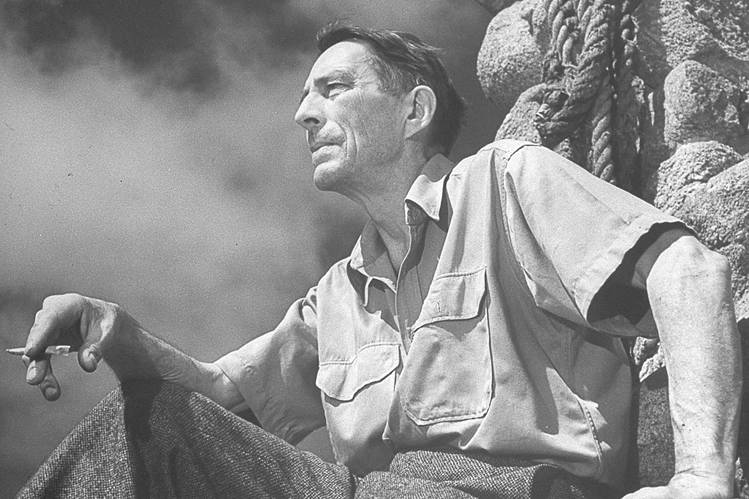
Tuesday
Here’s a Robinson Jeffers poem that I find particularly comforting at an historical moment that seems both the worst of times (Covid, economic collapse, rise of white nationalism) and the better of times (a vaccine on the horizon, a mature adult to be our next president). Staying focused on the big picture, the poet tells us, helps us negotiate our less-than perfect circumstances.
When Jeffers talks about delusional dreams, he could be talking about either rightwing dreams of a white Christian state or leftwing dreams of “universal justice or happiness.” Those who are so deluded may, in their frustration, opt for “open violence.”
While we should resist that call, however, we can’t opt out of engagement altogether. His advice to “choose the least ugly faction” is another way of saying, “choose the lesser of two evils” or “do not let the perfect be the enemy of the good.”
The important thing is “to keep one’s own integrity,” which involves being merciful and uncorrupted and not wishing for evil. And if we feel overwhelmed by our “pitiful confusions,” “drown[ing] in despair when [our] days darken,” Jeffers says we should recall “organic wholeness, the wholeness of life and things, the divine beauty/ of the universe.”
The Answer
Then what is the answer?- Not to be deluded by dreams.
To know that great civilizations have broken down into violence,
and their tyrants come, many times before.
When open violence appears, to avoid it with honor or choose
the least ugly faction; these evils are essential.
To keep one’s own integrity, be merciful and uncorrupted
and not wish for evil; and not be duped
By dreams of universal justice or happiness. These dreams will
not be fulfilled.
To know this, and know that however ugly the parts appear
the whole remains beautiful. A severed hand
Is an ugly thing and man dissevered from the earth and stars
and his history… for contemplation or in fact…
Often appears atrociously ugly. Integrity is wholeness,
the greatest beauty is
Organic wholeness, the wholeness of life and things, the divine beauty
of the universe. Love that, not man
Apart from that, or else you will share man’s pitiful confusions,
or drown in despair when his days darken.
I was alerted to the poem by Maria Popova’s luminescent blog Brain Pickings, which notes Jeffers’s importance to the environmental movement. Jeffers elaborated on what he meant by organic wholeness in a letter to a nun:
It is a sort of tradition in this country not to talk about religion for fear of offending — I am still a little subject to the tradition, and rather dislike stating my “attitudes” except in the course of a poem. However, they are simple. I believe that the universe is one being, all its parts are different expressions of the same energy, and they are all in communication with each other, influencing each other, therefore parts of one organic whole. (This is physics, I believe, as well as religion.) The parts change and pass, or die, people and races and rocks and stars, none of them seems to me important in itself, but only the whole. This whole is in all its parts so beautiful, and is felt by me to be so intensely in earnest, that I am compelled to love it, and to think of it as divine. It seems to me that this whole alone is worthy of the deeper sort of love; and that here is peace, freedom, I might say a kind of salvation.
“The parts change and pass” alludes to Shelley’s Adonais, which grapples with the tension between the one and the many, the eternal and the mortal:
The One remains, the many change and pass;
Heaven's light forever shines, Earth's shadows fly;
Life, like a dome of many-colour'd glass,
Stains the white radiance of Eternity,
Until Death tramples it to fragments.
That last line pulls one up short, especially as the United States just hit 300,000 Covid deaths. Focusing on “the divine beauty of the universe” cannot be an escape from ugliness in the world.
Think of it instead as a vision that will help us undertake the hard work needed to confront the darkening days.

